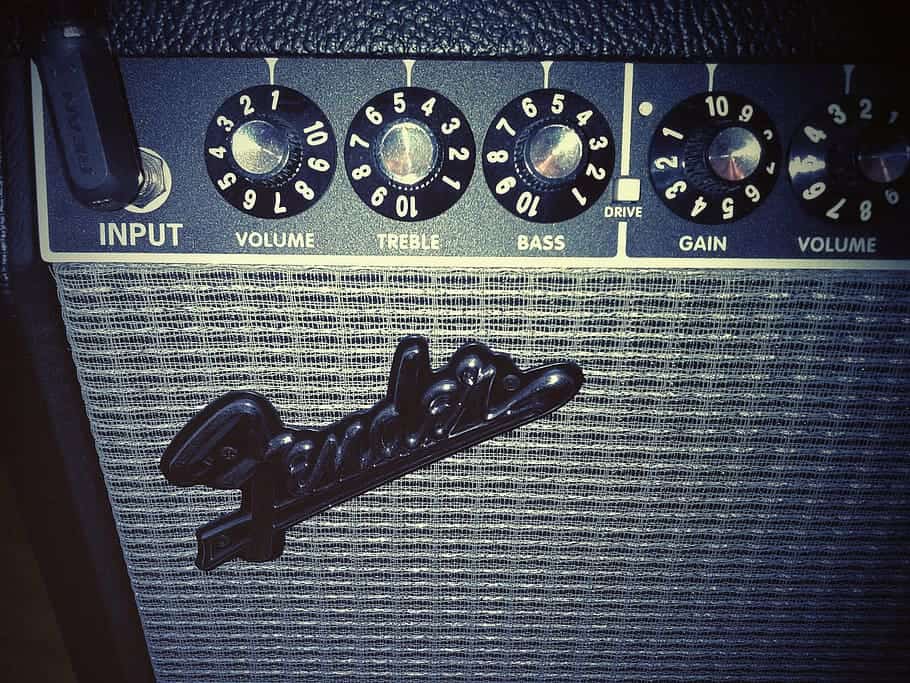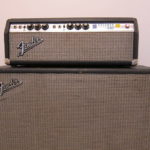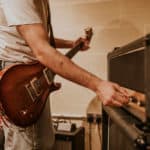Tube amps are perhaps the most important piece of gear for the task of defining a player’s tone.
These technological dinosaurs, which we love so much, are fragile things wrapped in many myths that need to be debunked.
Today we are going to talk about what happens if you leave an amp on for a long period of time, and if you just want a short answer about this, here it is:
Tube amps are designed to be on for long periods of time. Many manufacturers would recommend sessions of no more than 6 or 8 hours of consecutive play before a cool-down break of 30 minutes to 1 hour. Keep in mind also that tubes have a limited lifespan of 500 to 800 hours so use their uptime strategically.
For those who want to stick with me for a bit longer, in this article, I will answer the most common questions about what happens when you don’t turn your amp off.
After this short lecture, you will be way more confident about what is best for keeping your gear in good condition.
Are you ready to get started?
Let’s go!
Is it bad for a tube amp to stay on for a long period of time?
As long as your tube amp is working properly with adequate ventilation, being on for a long period of time shouldn’t be a problem. Just think about long gigs with shared equipment, the closing bands should worry about their gear exploding if this was the case. Amp tubes do have a limited lifespan, however.
And this last thing is the only one you should only worry about. With 500 to 800 hours of lifespan, tubes are the first thing that’s going to fail in a modern amplifier.
This usable life will vary between models of an amp, tubes, and their usage. Of course, if you leave it on and pushed to the maximum every day, you will be closer to the lower bound.
How long can you leave a tube amp on?
A tube amp is designed to be on for long periods of time. This, however, is not a recommendation. Most manufacturers will recommend no more than 6 to 8 hours of continuous play with at least a 30-minute cool-down break. This heavy kind of usage will surely decrease its expected life without failures.
Is it bad to leave a tube amp on stand-by for a long period of time?
If you have the choice of leaving your amp on or switching it to stand-by you should always go for the last option. A tube amp in stand-by will remain heated, but at a lower temperature, this will be a milder punishment to the valves and will increase their lifespan.
Also, when you come back, the tube will heat up faster than if you turned it off. It’s a win-win solution.
How long can you leave a tube amp on standby?
You could leave a tube amp in stand-by indefinitely. However, keep in mind that it will be drawing energy from the grid since the stand-by mode is designed to preheat the valves. This will also degrade the tubes in the long run. If you don’t intend on playing later, it would be better if you turned it off.
Should you turn off your amp when taking a break?
If you are just taking a short break it would be better to leave the amp on stand-by. It will take less to return to its working heat later, and will avoid the stress of the startup cycle when you return. If you are planning a long break and maybe using it in a few hours, it would be better to turn it off.
You don’t have to be extremely obsessive with this, but if it’s within your possibilities to forecast your playing schedule, you could plan accordingly.
Why does my amp sound bad after I just turned it on?
Tube amps need to build up a certain amount of heat on their valves to work at their intended performance. Although it’s not necessary to warm up your amp before playing, it will take 15 to 30 minutes to deliver its best tone and feel. This is why many players turn their amps on minutes before a session.
Will a tube amp sound better if it’s on for a long period of time?
A tube amp’s tone and performance will peak at around 30 minutes after it has been turned on. From that mark onwards there would rarely be any changes in sound. Amps are designed to go up to a certain amount of heat and then stay there for the rest of their uptime.

Hello there, my name is Ramiro and I’ve been playing guitar for almost 20 years. I’m obsessed with everything gear-related and I thought it might be worth sharing it. From guitars, pedals, amps, and synths to studio gear and production tips, I hope you find what I post here useful, and I’ll try my best to keep it entertaining also.





